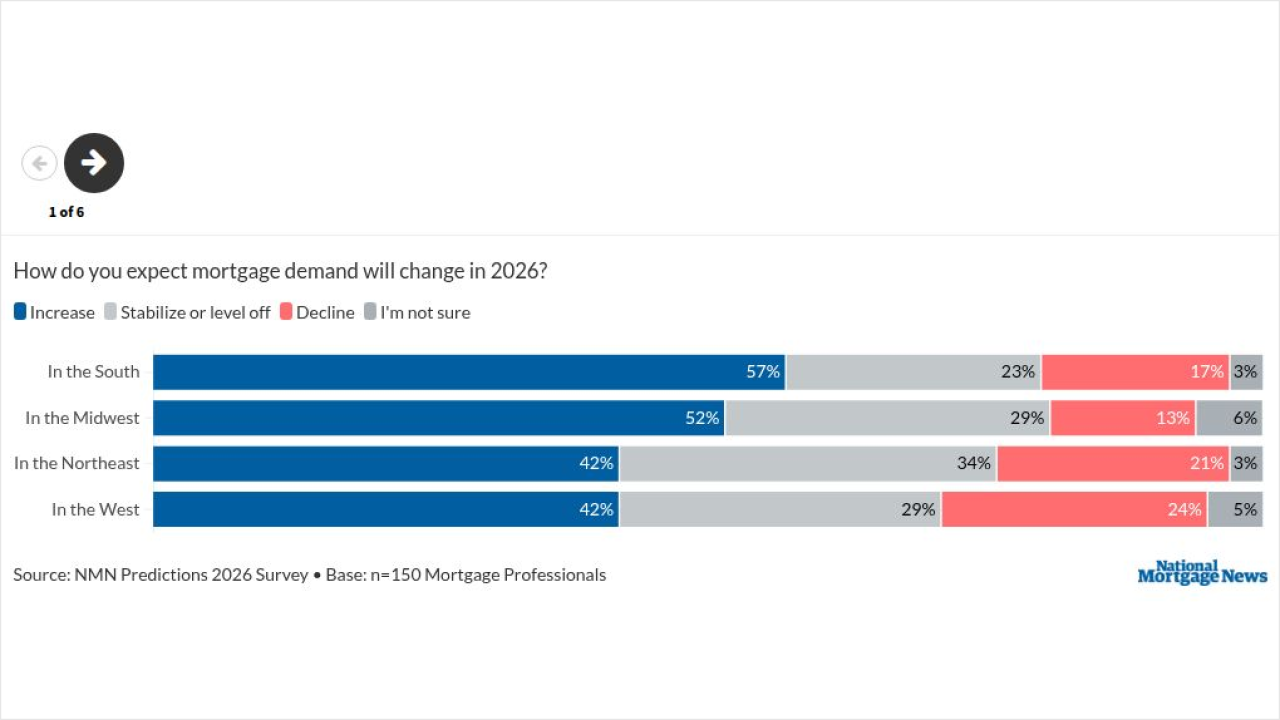A growing number of industry groups are calling on the Federal Housing Finance Agency to rethink proposed amendments that would
Opposition to the proposal, which could affect companies selling loans to or servicing mortgages for two large government-related players, largely centers on the inclusion of certain forms of civil misconduct as suspension criteria.
The FHFA has said the criteria would only be applied to certain "covered misconduct" such as "fraud or embezzlement, etc.," but some trade organizations are concerned it could be extended to relatively small infractions.
"Overall, the expansion of this program ... could have major impacts on sellers and servicers, exposing them to suspension risk for relatively minor regulatory or legal settlements," the Mortgage Bankers Association and two other groups said in response to a request for comment.
The scope of the expansion would extend not only to blatant violations but unintentional mistakes, MBA, the American Bankers Association and a group of community financial institutions said in their comment letter.
"Civil fraud, for instance, can be proved by demonstrating a negligent misrepresentation rather than intentional deceit," said the trio, which also includes the Independent Community Bankers of America.
The FHFA says in its proposal that "counterparties determined to have committed certain forms of misconduct in the context of civil enforcement actions may pose a significant risk to the regulated entities," but the trade groups said they're unclear on what the specific concerns are.
The three groups called for better enforcement of current standards around criminal charges, like the ones
That might help FHFA with a backlog of suspended counterparty referrals, they said.
The backlog dates back to at least 2017, according to the agency's watchdog. In the FHFA inspector general's last follow-up report on these concerns (from 2021), it found improvement but indicated more needed to be done to eradicate it.
(The agency's general counsel "disagreed with certain conclusions" in the 2021 report and indicated that valid roadblocks stood in the way of meeting the deadline in some cases.)
In contrast to MBA/ABA/ICBA letter and others from industry trade groups, some individual commenters and at least one from a consumer advocacy organization indicated they were supportive of the expanding the scope of counterparty suspensions.
The FHFA is part of
"This is especially important for tenants living in multifamily properties with federally backed mortgages," the fund and NHLP wrote in a comment letter. "Tenants on the private rental market have very few existing tools to hold landlords accountable for violations of their rights."
While these two entities generally liked the proposal, even they suggested that more specifics related to what type of civil actions the expansion would encompass would improve it.
"FHFA should strengthen the proposed rule by adding examples of the types of misconduct and sanctions that would give rise to suspension," the fund and the housing law project said in their letter.




